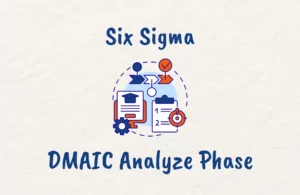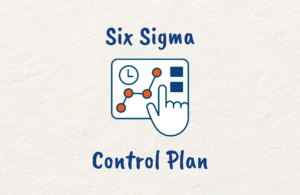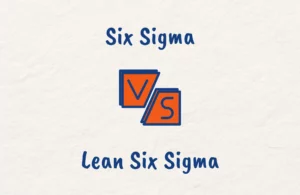Among the various Agile methodologies out there, the Scrum framework is one that has gained a lot of popularity in recent years, and for good reasons.
To enable this framework to work optimally and deliver the expected and required value, the role of a Scrum Master is crucial.
A Scrum Master acts as the facilitator, coach, and mediator between the Developers, Product Owner, and stakeholders.
They’re responsible for ensuring that the team adheres to the principles and practices of the Scrum framework. So, what is one accountability of a Scrum Master? Let’s find out then.
What Is One Accountability of a Scrum Master?
According to the Scrum Guide, the primary accountability of a Scrum Master is the Scrum team’s effectiveness.
They do this by enabling the Scrum Team to improve its practices, within the Scrum framework. Simple? Well, not quite.
If you’re starting out as a Scrum Master and after reading the accountability of a Scrum Master you think “Well, this doesn’t sound like a lot”, I advise you to hold on to your britches for a minute.
The Scrum Master has other responsibilities which include ensuring that the Scrum framework is implemented correctly and removing any obstacles that might hinder the team’s progress towards achieving their goals.
The Scrum Master also ensures that the team remains focused on its objectives and follows the Scrum process’s principles. But that’s not all.
Let’s go back to the accountability of the Scrum Master. Being accountable for the team’s effectiveness goes beyond one line especially considering that there are different roles on the team.
The Scrum team consists of a Product Owner, Scrum Master, and Developers often encased within an organization.
For the team to be effective, every role has to be effective and the Scrum Master is accountable for this.
So, the Scrum Master has to serve each role in the team and the organization to promote overall effectiveness. To know how this is done, let’s back up a bit and view Scrum from a high level.

What are the Scrum Roles?
Scrum is an Agile project management framework that focuses on delivering a high-quality product in an iterative and incremental manner.
The Scrum framework consists of three roles: the Product Owner, the Developers, and the Scrum Master.

The Role and Accountability of the Product Owner
The role of the Product Owner is to maximize the value of the product which is developed from the work of the Scrum team.
The way this gets done varies across different organizations and individuals. The Product Owner is accountable for the management of the Product Backlog. This involves:
- Developing and explicitly communicating the Product Goal.
- Creating and clearly communicating the Product Backlog items.
- Ordering and Prioritizing the Product Backlog items.
- Ensuring that the Product Backlog is transparent, visible, and understood.
The Product Owner remains accountable for this, although some parts may be delegated.

The Role and Accountability of the Developers
The role of the Developers in the Scrum team is to create any aspect of valuable increment in each sprint.
The specific skills needed by the Developers are broad and vary across different domains. However, they’re accountable for:
- Creating a plan for the sprint and the Sprint Backlog.
- Instil quality by adhering to a Definition of Done (DoD).
- Adapting the sprint plan daily towards the Sprint Goal.
- Holding each other responsible as professionals.

The Role and Accountability of the Scrum Master
Now that you have a better idea of the roles and accountability of the Product Owner and Developers, we’ll go back to the question of the one accountability of a Scrum Master and how deep it goes.
It’s important to understand first of all that a Scrum Master is not a Project Manager. This distinction is especially necessary for people coming from a traditional project management background.
A Scrum Master is a servant leader. The role is designed to serve the other roles and facilitate their interactions within the Scrum framework to ensure they operate effectively within the organization.
Scrum Masters are responsible for removing any obstacles that might hinder the team’s progress towards achieving their goals.
They also ensure that the team remains focused on its objectives and follows the Scrum process’s principles by:
Facilitating Scrum Events
Scrum Masters are responsible for facilitating all Scrum events, including Sprint Planning, Daily Scrum, Sprint Review, and Sprint Retrospective.
These events have to be conducted effectively, within the timebox, and such that the team derives maximum benefit from them.
During the Sprint Planning event, the Scrum Master ensures that the team has a clear understanding of the Sprint Goal and that the Product Backlog items have been appropriately selected and prioritized.
They’re to facilitate discussions to help the team come up with a viable plan for the sprint.
During the Daily Scrum, the Scrum Master ensures that the team meets daily to discuss their progress towards achieving the Sprint Goal.
They’re to ensure that the event follows the timebox of a maximum of 15 minutes and that issues discussed are relevant and focused on the goal.
During the Sprint Review, the Scrum Master ensures that the team showcases the Product Increment that was developed in the sprint.
They also facilitate discussions with the Product Owner and stakeholders to get feedback on the Product Increment.
During the Sprint Retrospective, the Scrum Master facilitates discussions to identify areas of improvement in the team’s process and practices and help the team come up with actionable steps for improvements in the next sprint.
Coaching the Developers
Scrum Masters coach the team to ensure that they understand and adhere to the Scrum principles and practices.
The goal is to help the team members to develop a clear understanding of their roles and responsibilities and to work collaboratively towards achieving the sprint goal.
Scrum Masters also coach the team members on Agile engineering practices such as test-driven development, continuous integration, and continuous delivery.
They ensure that the team members are using these practices effectively to deliver a high-quality Product Increment.
Ensuring Transparency
One of the pillars of the Scrum framework is transparency. It’s the Scrum Master’s to ensure that there’s transparency in the team’s process and practices.
They facilitate communication between the team members, the Product Owner, and the stakeholders and ensure that the Product Backlog is visible, up-to-date, and accurately reflects the team’s progress towards achieving the Sprint Goal.
The team’s progress towards achieving the Sprint Goal has to also be visible to everyone and the Scrum Master needs to ensure this.
They help the team to create sprint burndown charts, which depict the team’s progress towards completing the Sprint Backlog items
Removing Impediments
Impediments or obstacles could be anything that could hinder the Scrum team’s progress towards achieving the Sprint Goal.
The Scrum Master is responsible for identifying and removing these impediments ranging from resource constraints, technical issues, organizational roadblocks, and conflicts between team members.
The Scrum Master works as a servant leader with the Product Owner and stakeholders to ensure that the team has everything they need to complete their work.
They also work with the team members to find solutions to any issues that arise during the sprint.
Serving the Product Owner and Stakeholders
The Scrum Master also plays the role of a mediator between the Product Owner, stakeholders, and Developers by ensuring that the Product Owner’s requirements are clearly defined and understood by the Developers.
They also facilitate communication between the Product Owner and stakeholders to ensure that their feedback is incorporated into the Product Backlog.
Also, the Scrum Master works with the Product Owner to prioritize the Product Backlog items based on business value and ensure that the Developers are working on the most important items first.
Continuous Improvement
Scrum Masters are responsible for continuously improving the team’s processes and practices.
They help the team to identify areas of improvement during the Sprint Retrospective and facilitate discussions to come up with actionable steps to improve their performance in the next sprint.
Scrum Masters also continuously learn and improve their skills to better serve the team, Product Owner, and stakeholders.
They attend Scrum Master training, read Agile development books and articles, and participate in Scrum Master communities to stay up-to-date with the latest trends and best practices.
Conclusion
In conclusion, the accountability of a Scrum Master is to ensure that the Scrum framework is implemented correctly.
This is done by facilitating Scrum events, coaching the Developers, ensuring transparency, removing impediments, serving the Product Owner and stakeholders, and continuously improving the team’s process and practices.
The role of a Scrum Master is critical in ensuring that the team delivers a high-quality Product Increment in an iterative and incremental manner.
If you’re interested in learning more about Scrum, consider attending a Scrum Master training or reading up on Agile development books and articles.
FAQs
What is Accountability in Scrum Framework?
Accountability in the Scrum framework refers to the responsibility of each Scrum role individual involved in the project to ensure that they meet the commitments they have made towards achieving the project goals
Is the Scrum Master Accountable for the Product Backlog?
No, the Scrum Master is not accountable for the Product Backlog in Scrum Framework. The Product Owner is the one accountable for Product Backlog management and ensuring that it’s properly maintained and prioritized.
While the Scrum Master can support the Product Owner in managing the Product Backlog, the ultimate accountability lies with the Product Owner.
Which Accountability ensures Scrum is Understood and Enacted?
The Scrum Master is responsible for ensuring that the Scrum framework is understood and enacted by all members of the Scrum team.
This is achieved through coaching, facilitating meetings, removing impediments, and promoting transparency.
What is One Accountability of the Product Owner?
One accountability of the Product Owner in Scrum Framework is Product Backlog management.
This involves creating and prioritizing the items on the Product Backlog based on customer needs and feedback.
The Product Owner must also ensure that the Product Backlog is visible, transparent, and understood by the entire team
What is One Service a Scrum Master Provides to the Product Owner?
The Scrum Master serves the Product Owner by helping them prioritize and manage the product backlog, facilitate meetings and discussions, and ensure that the team adheres to the Scrum process.
They also provide support and guidance to the Product Owner to help them make better decisions and reach objectives.





